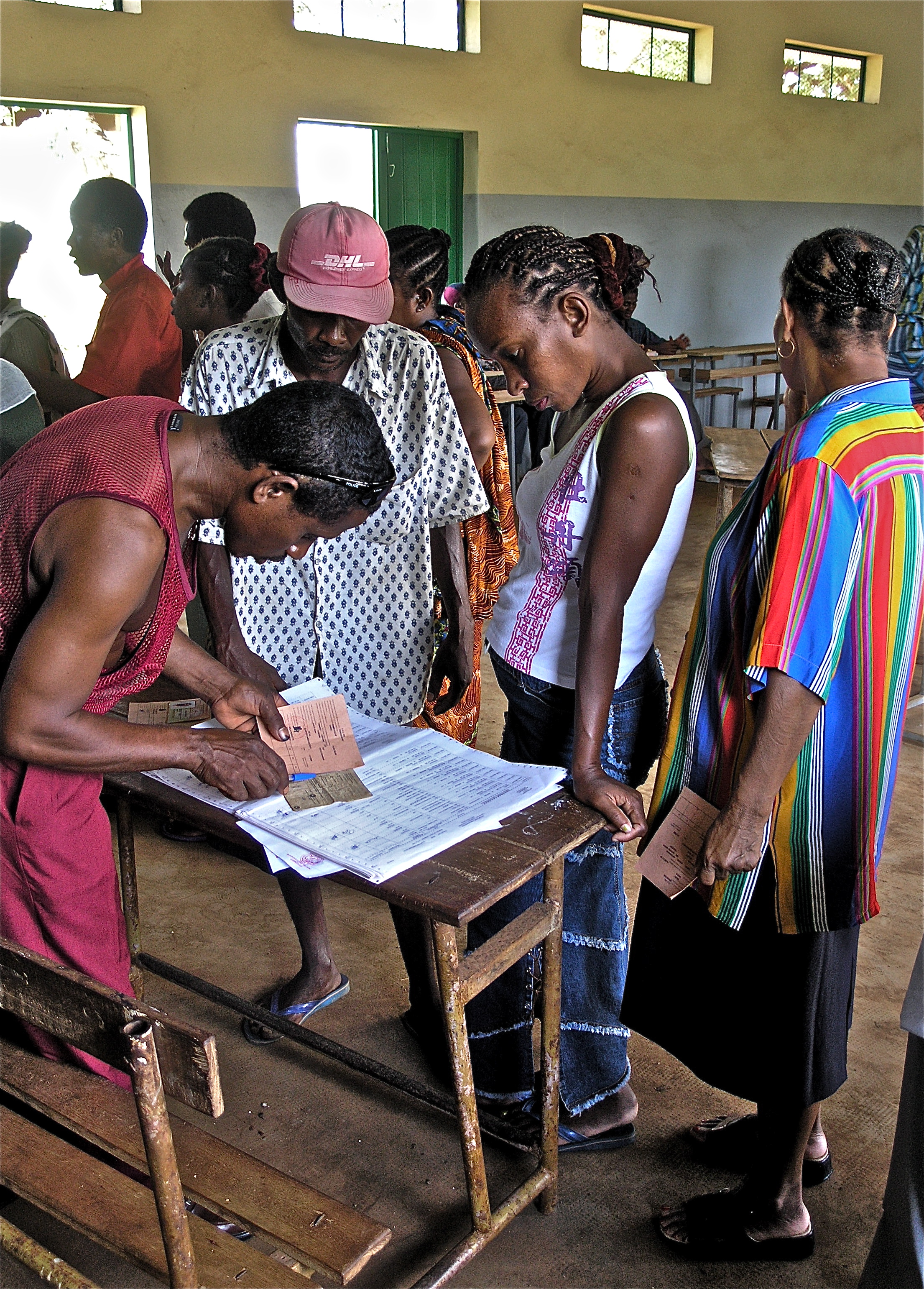
Poll observer recalls lows and highs

Former election observer Heinz Rudolf von Rohr helped uncover voting irregularities in Central Asia and Africa, but says Switzerland could improve its procedures too.
But no-one likes criticism, and there is a strict rule at the Organization for Security and Co-operation in Europe (OSCE) for all its election observer missions.
“We are observers and gather information, but we must not intervene even if we see that people are lying and cheating,” Rudolf von Rohr explained. The reports are forwarded to the observer headquarters which examine them.
Asked whether the role as seemingly powerless observers does not leave a feeling of frustration, Rudolf von Rohr recalled an incident from the 2004 presidential elections in Ukraine.
A local governor tried to rig the elections by having election officials forge a number of ballot sheets using official stamps. Election observers who were tipped off insisted on a meeting with the governor. He first tried to send them away and after two hours of discussions and increasingly unnerved he gave up his attempt at vote tampering.
“We could prove the vote rigging, which was rife in other constituencies. So the country’s highest court cancelled the ballot,” said Rudolf von Rohr.
“The vote was repeated and was won by Viktor Yushchenko. It was a victory for the Orange Revolution.”
Resignation
Von Rohr noticed voting behaviour being repeated across the countries of the former Soviet Union, where people were used to voting for the ruling Communist party.
He cited the example of Georgia, where people made it clear they were very dissatisfied with their situation. And yet President Mikheil Saakashvili won a huge majority in the last elections.
“Citizens believe that they have no other choice but to vote for the ruling party. Those who refuse to do so risk losing their jobs,” he recalled.
In one instance the monitors learned about a regional manager of a railway company who fired ten people known for not giving their vote to the ruling party. But the group took revenge later. They ambushed their boss and beat him up, and a day later they had their jobs back.
In another widespread malpractice in former Soviet republics constituencies with the highest number of votes for the ruling party were rewarded with additional resources and material.
“In one case we were shown ten tractors which a village had received as a gift from President Mikheil Saakashvili because the local citizens had been particularly true to the principles of the ruling party.”
Oversensitive Swiss
As a Swiss citizen, von Rohr does not exclude his own country from criticism either.
In 2007 an OSCE mission observed Swiss parliamentary elections for the first time and pointed a finger at the opaque system of party financing. The criticism did not go down well.
“Many of our politicians would not accept such an outside observation,” said von Rohr – despite the fact that there are laws on party financing in most countries in the world, including many which are not regarded as being democratically as far advanced as Switzerland.
The reaction reminds him of the dispute over banking secrecy.
“Too proud or too stubborn” to admit that current regulations will not hold much longer against the pressure from outside, the country clings to its banking laws, he said.
Special memory
Von Rohr keeps a special memory of his years as international observer from an episode in Namibia, when he helped an old and frail man cast his ballot.
“I took the man into the booth where he put his cross on the ballot sheet. His son who had carried him in his arms to the polling station was not allowed to enter the booth with him.”
Twenty minutes after they had left the office the son came back and told the election observers that his father had died – a happy man because he had been able to vote for the first time in his life.
The incident in Namibia makes von Rohr wonder about the situation in Switzerland where many citizens do not both to turn out to vote.
“It makes me somewhat sad,” he said.
The OSCE, the EU, the UN and the OAU are all active in the field of election observation.
The OSCE is involved mainly in Europe and Asia, whereas the EU works in Latin America and in Africa, in cooperation with the OAU.
The EU carried out an observer mission in Afghanistan on behalf of the UN.
Switzerland has a pool of about 100 members trained for election observation duties for short-term and long-term missions.
The aim of observer missions of the OSCE is to promote democratic elections based on a systematic, comprehensible and verifiable methods.
Missions examine the legal and regulatory framework, the election administration, the campaign, complaints and appeals, vote counting and the announcement of results.
Initially trained as a primary school teacher, but later completed a doctorate in geography and worked as a secondary school teacher for 15 years.
Moved to Swiss Broadcasting Corporation, where he worked in training.
After 8 years moved to the Swiss Agency for Development and Cooperation as head of personnel.
Observed his first election in Namibia in 1989.
After retirement spent several months abroad most years as an election observer.
Obliged to give up observing in 2010, since by law the Swiss Confederation cannot give employment contracts to people over 70.
(Adapted from German by Urs Geiser)

In compliance with the JTI standards
More: SWI swissinfo.ch certified by the Journalism Trust Initiative



























You can find an overview of ongoing debates with our journalists here . Please join us!
If you want to start a conversation about a topic raised in this article or want to report factual errors, email us at english@swissinfo.ch.